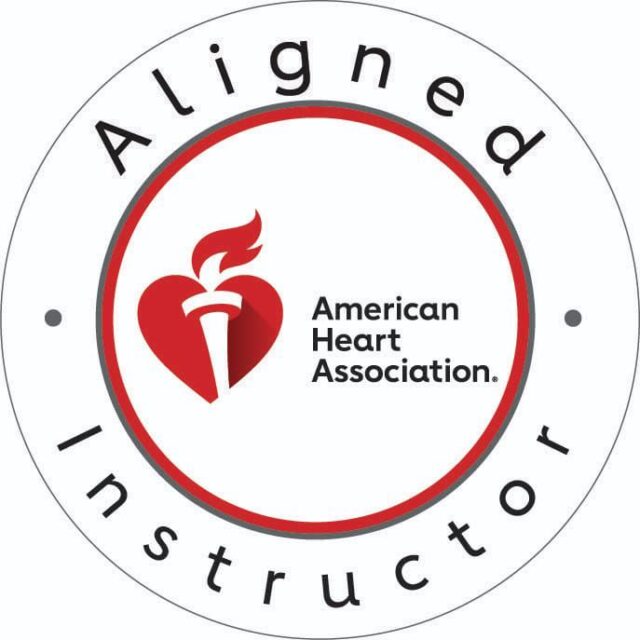As we age, maintaining good health and fitness becomes increasingly important for the senior person. Engaging in regular exercise and adopting healthy habits can significantly enhance the quality of life for seniors.
However, most seniors do not know where to start to maintain their fitness. Here we will explore the significance of senior health and fitness, highlighting its numerous benefits and providing practical tips to promote a vibrant and active lifestyle.
What Are The Importance of Senior Health and Fitness?
Fitness in general is good for the physical, mental, and overall well-being of an individual. You can never go wrong with maintaining fitness at whatever age and time. Here are some of the detailed reasons why fitness for seniors is important for healthy living:
#1. Enhances Physical Well-being
Regular exercise is vital for seniors as it offers numerous benefits to their physical well-being some of which include:
- Engaging in physical activities helps improve cardiovascular health by strengthening the heart and improving blood circulation.
- It also promotes strong bones and muscles, reducing the risk of osteoporosis and age-related muscle loss.
- Also, with regular exercise, seniors increased flexibility and balance which helps to prevent falls and maintain mobility. This allows seniors to remain independent and active.
- Furthermore, regular physical activity plays a crucial role in weight management. As metabolism naturally slows down with age, exercise helps burn calories. This helps seniors maintain a healthy weight, and reduce the risk of obesity-related conditions such as diabetes and heart disease.
- Additionally, exercise strengthens the immune system, making seniors more resilient to illnesses and infections.
#2. Enhances Mental Well-being
Being mentally fit is another form of healthy living. Senior health and fitness are closely linked to mental well-being.
Seniors living with Alzheimer’s and dementia can benefit from regular exercise to keep them mentally active. Some of the benefits of fitness for seniors in the area of mental well-being include:
- Exercise stimulates the release of endorphins, which are natural mood boosters. This alleviates symptoms of depression and anxiety, promoting a more positive outlook on life.
- Furthermore, seniors engaging in fitness activities support cognitive function and memory retention. Studies by the National Institutes Of Health show that exercise increases blood flow to the brain. This promotes neuroplasticity and reduces the risk of age-related cognitive decline, including conditions like dementia and Alzheimer’s disease. By keeping the mind sharp, seniors can maintain mental acuity and enjoy an improved quality of life.
- Additionally, senior fitness often involves social engagement. Participating in group exercise classes, joining fitness clubs, or even exercising with friends or family provides opportunities for social interaction, combating feelings of loneliness and isolation that some seniors may experience.
Practical Tips for Senior Health and Fitness
Having a head knowledge of the importance of fitness is not enough to keep fit. Starting out an exercise routine can be a daunting task as many seniors may not have an idea of where to start or what exercise routine is good for them.
So here are some of the practical tips for senior health and fitness:
#1. Consult with a Healthcare Professional
Before embarking on any exercise program, it is crucial for seniors to consult with their healthcare professionals. This step ensures that the chosen activities are safe and suitable for their individual health conditions and limitations.
Healthcare professionals can provide valuable guidance, considering factors such as previous injuries, chronic illnesses, and medications, to design a personalized fitness plan that addresses specific needs and minimizes risks.
#2. Incorporate Physical Activities
To promote senior health and fitness, it is recommended to incorporate a variety of physical activities into daily routines. Here are some practical tips:
- Moderate Aerobic Activities: Engage in activities such as brisk walking, swimming, cycling, or low-impact aerobics for at least 150 minutes per week. These activities improve cardiovascular health, strengthen muscles, and increase endurance.
- Strength Training Exercises: Include strength training exercises at least two days a week. This can involve using resistance bands, weights, or bodyweight exercises to maintain muscle mass, improve bone density, and enhance overall strength.
- Flexibility and Balance Exercises: Incorporate exercises that focus on flexibility and balance, such as yoga or tai chi. These activities help improve the range of motion, prevent stiffness, and reduce the risk of falls.
#3. Incorporate Healthy Eating Habits
A well-balanced diet plays a crucial role in senior health and fitness. Consider the following tips:
- Fruits and Vegetables: Include a variety of fruits and vegetables in daily meals. They are rich in essential vitamins, minerals, and antioxidants that support overall health.
- Whole Grains: Opt for whole grain options like whole wheat, brown rice, and oats, which provide fiber and sustained energy.
- Lean Proteins: Choose lean sources of protein, such as fish, poultry, beans, and legumes, to support muscle health and repair.
- Healthy Fats: Include sources of healthy fats, such as avocados, nuts, seeds, and olive oil, which contribute to heart health and brain function.
- Hydration: Stay adequately hydrated by drinking plenty of water throughout the day. Aim for at least 8 glasses of water daily.
- Avoid Processed Foods: Limit the intake of processed foods, sugary snacks, and high-sodium meals.
#4. Prioritize Rest and Recovery
Rest and recovery are essential components of a well-rounded fitness routine for seniors. Consider the following tips:
- Listen to Your Body: Pay attention to signs of fatigue, and allow yourself to rest when needed. Pushing too hard can lead to overexertion and injuries.
- Quality Sleep: Ensure you get an adequate amount of sleep each night. Aim for 7-9 hours of uninterrupted sleep to support energy levels, muscle recovery, and overall health.
- Recover Fully: Allow sufficient time for rest and recovery to prevent overexertion and promote overall well-being.
What Kind Of Exercises Are Ideal For Senior Health and Fitness?
When it comes to exercises for senior health and fitness, it is important to focus on activities that are safe, low-impact, and tailored to individual abilities. Here are some ideal exercises for seniors:
- Walking: Walking is a low-impact exercise that can be easily incorporated into daily routines. It improves cardiovascular health, strengthens leg muscles, and helps maintain overall mobility and balance.
- Swimming: Swimming and water aerobics are excellent options for seniors as they provide a full-body workout while minimizing joint stress. They improve cardiovascular fitness, muscle strength, and flexibility.
- Cycling: Cycling, whether outdoors or on a stationary bike, is a low-impact exercise that strengthens leg muscles and improves cardiovascular endurance. It can be adjusted to individual fitness levels and is gentle on the joints.
- Strength Training: Incorporating strength training exercises using resistance bands, light weights, or bodyweight exercises helps maintain muscle mass, bone density, and overall strength. Focus on exercises that target major muscle groups, such as squats, lunges, bicep curls, and shoulder presses.
- Flexibility and Balance Exercises: Activities like yoga, tai chi, and stretching routines enhance flexibility, improve posture, and promote better balance, reducing the risk of falls. These exercises also contribute to overall relaxation and mental well-being.
- Chair Exercises: For seniors with limited mobility or balance issues, chair exercises are an excellent option. These exercises can include seated leg lifts, arm curls, and seated twists, helping maintain muscle strength and flexibility.
- Balance and Stability Exercises: Engaging in exercises that specifically target balance and stability, such as standing on one leg, heel-to-toe walking, or using balance boards, can help improve coordination and reduce the risk of falls.
Conclusion
Embracing senior health and fitness is a gateway to an active, fulfilling, and independent lifestyle.
By incorporating regular exercise, adopting healthy eating habits, and prioritizing rest, seniors can enhance their physical and mental well-being.
It is important for seniors to consult with healthcare professionals to develop personalized fitness plans that cater to their individual needs and abilities.
With the right approach, seniors can thrive in their golden years, enjoying the benefits of improved health, vitality, and overall quality of life.
If you are in Indiana and looking for a home care agency with a personalized client care plan or you are looking for how to access quality care services, visit Good Hands home care agency, where care is offered with professionalism and efficiency.






3 comments
Pingback: 15 Ways To Care For Someone Living With Parkinson's
Pingback: Diet Planning for the Elderly: Key Considerations for Optimal Health
Pingback: 15 Ways To Keep Your Elderly Loved Ones Active At Home
Comments are closed.